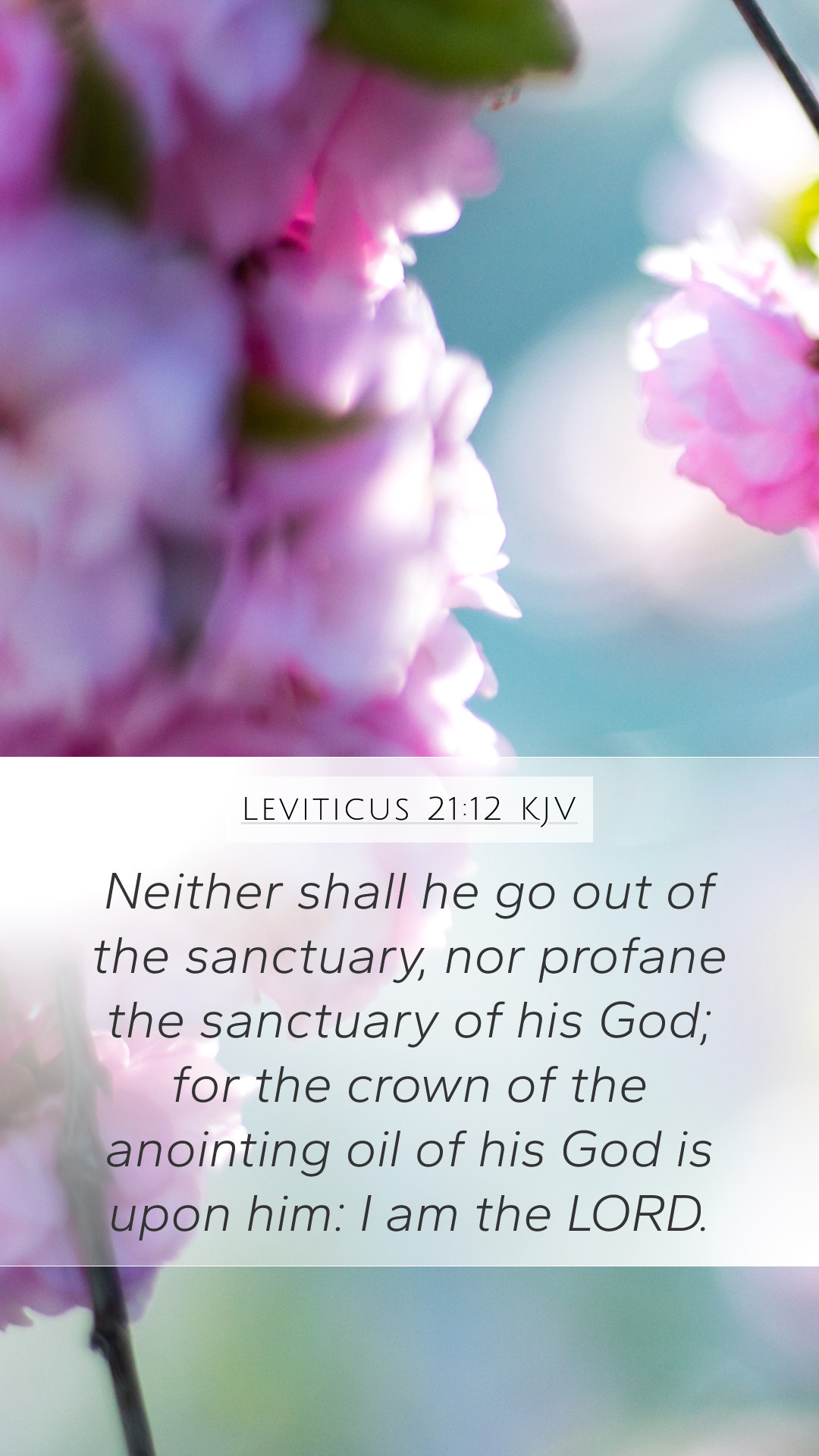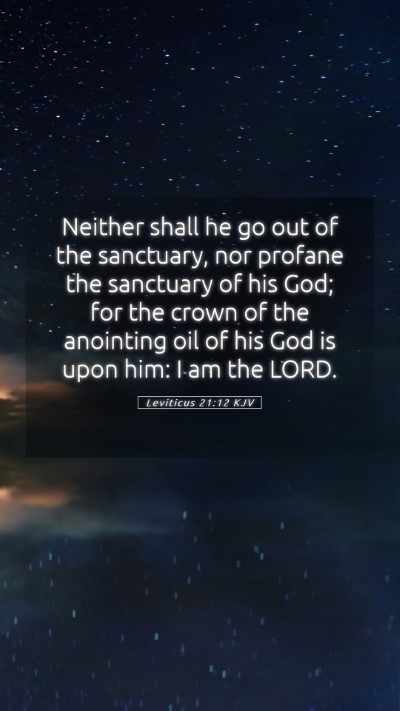Bible Verse Commentary: Leviticus 21:12
Leviticus 21:12 states: "Neither shall he go out of the sanctuary, nor profane the sanctuary of his God; for the crown of the anointing oil of his God is upon him: I am the Lord." This verse carries significant meaning in the context of the priestly duties and their relationship with God.
Understanding the Meaning of Leviticus 21:12
This verse is a part of the laws governing the behavior of priests, particularly the High Priest, and emphasizes purity and devotion. Several insights from public domain commentaries provide deeper understanding:
-
Matthew Henry's Commentary:
Henry explains that the priest's role was sacred, and they were expected to maintain a strict separation from the common activities of daily life. Going out of the sanctuary signals a deviation from the divine responsibilities entrusted to them. The divine presence in the sanctuary demands respect and reverence, as they are custodians of sacred rites.
-
Albert Barnes' Commentary:
Barnes emphasizes that the sanctity associated with the anointing oil signifies God's selection of this individual for His service. By remaining within the sanctuary and not profaning it, the priest honors God's covenant and serves as a mediator between God and the people. The prohibition against leaving the sanctuary symbolizes the enduring commitment to God’s holiness and presence.
-
Adam Clarke's Commentary:
Clarke notes the spiritual implications of this verse, indicating that leaving the sanctuary represents a neglect of the responsibility entrusted to the priest. Clarke also draws parallels to New Testament teachings, illustrating how such dedication is echoed in the lives of believers who are also called to be a "royal priesthood" (1 Peter 2:9), highlighting the unbroken relationship Christians must maintain with God.
Historical Context of Leviticus 21:12
Understanding this verse requires delving into the historical context of Israelite worship practices. The Levites were specifically chosen to perform priestly duties, and their conduct was crucial for maintaining the covenant between God and Israel. The holiness codes outlined in Leviticus were designed to ensure that the people approached God with purity and respect.
This passage reflects the seriousness of the anointing oil, which symbolizes divine empowerment and selection. The responsibilities placed upon the priests were not merely ceremonial; they involved safeguarding the community’s spiritual well-being.
Application of Leviticus 21:12 in Daily Life
The core message of Leviticus 21:12 encourages believers to recognize the sanctity of their calling. Just as the priests were set apart for God’s work, so too are Christians called to dedicate their lives in service to Him. There are several applications of this verse in modern contexts:
-
Commitment to Holiness:
Believers are called to live lives that reflect God's holiness, avoiding actions that would tarnish their testimony or relationship with God.
-
Understanding Divine Assignments:
Every believer is an ambassador of Christ and has a responsibility to uphold the sanctity of this role in daily interactions and decisions.
-
Community and Accountability:
Just as the priests were part of a larger community of worship, believers are encouraged to participate in church and service groups, fostering accountability and support.
Cross References
This verse can be further understood in light of the following cross-references:
- Exodus 30:30 - Anointing of Priests
- 1 Peter 2:9 - A Royal Priesthood
- Hebrews 5:4-6 - The Role of the Priest
Conclusion
In summary, Leviticus 21:12 serves as a vital reminder of the holiness required in God’s service, emphasizing the importance of dedication, spiritual integrity, and community accountability. By maintaining this understanding, believers can enrich their spiritual lives and apply these principles in practical ways, thus deepening their engagement with Scripture and their faith.


